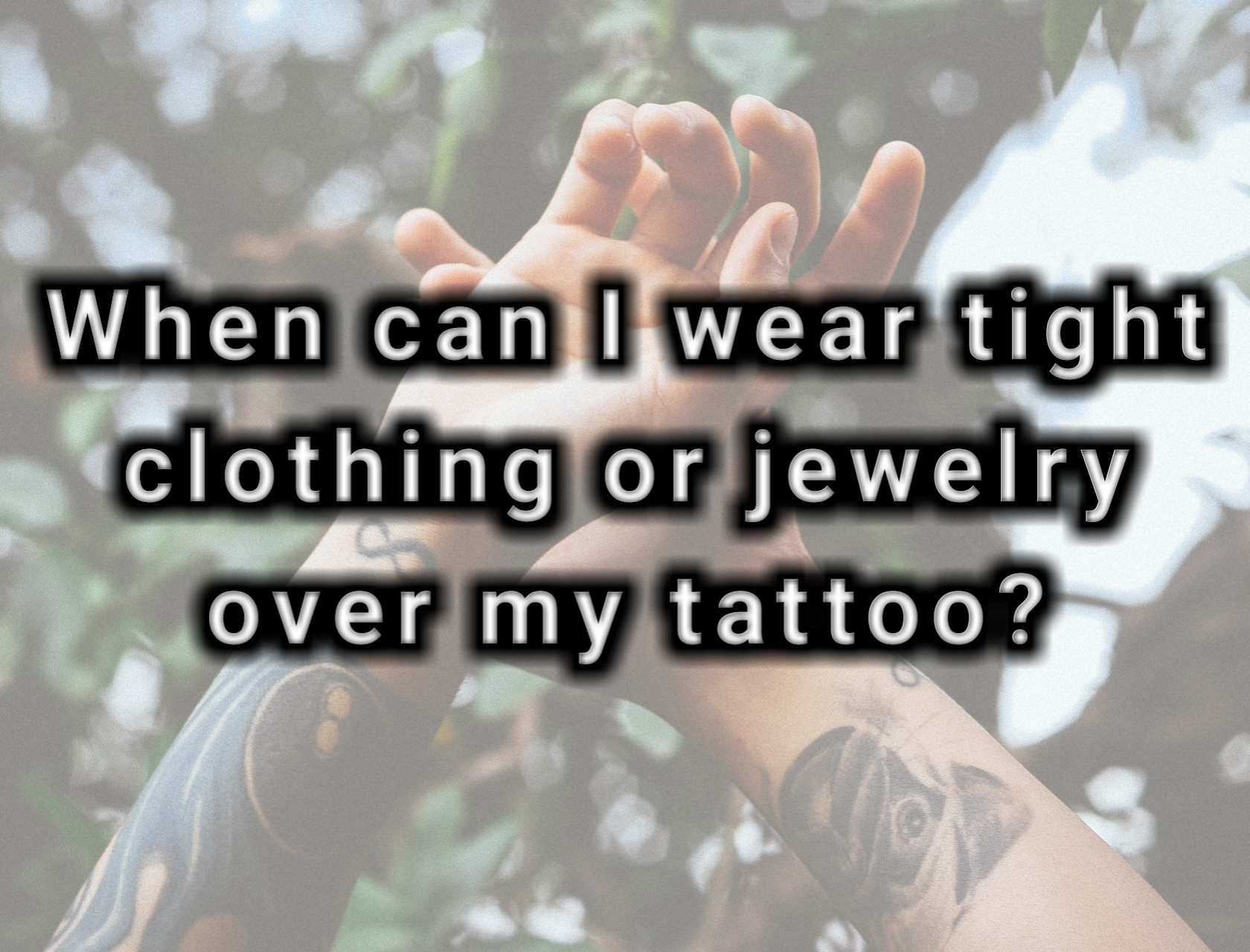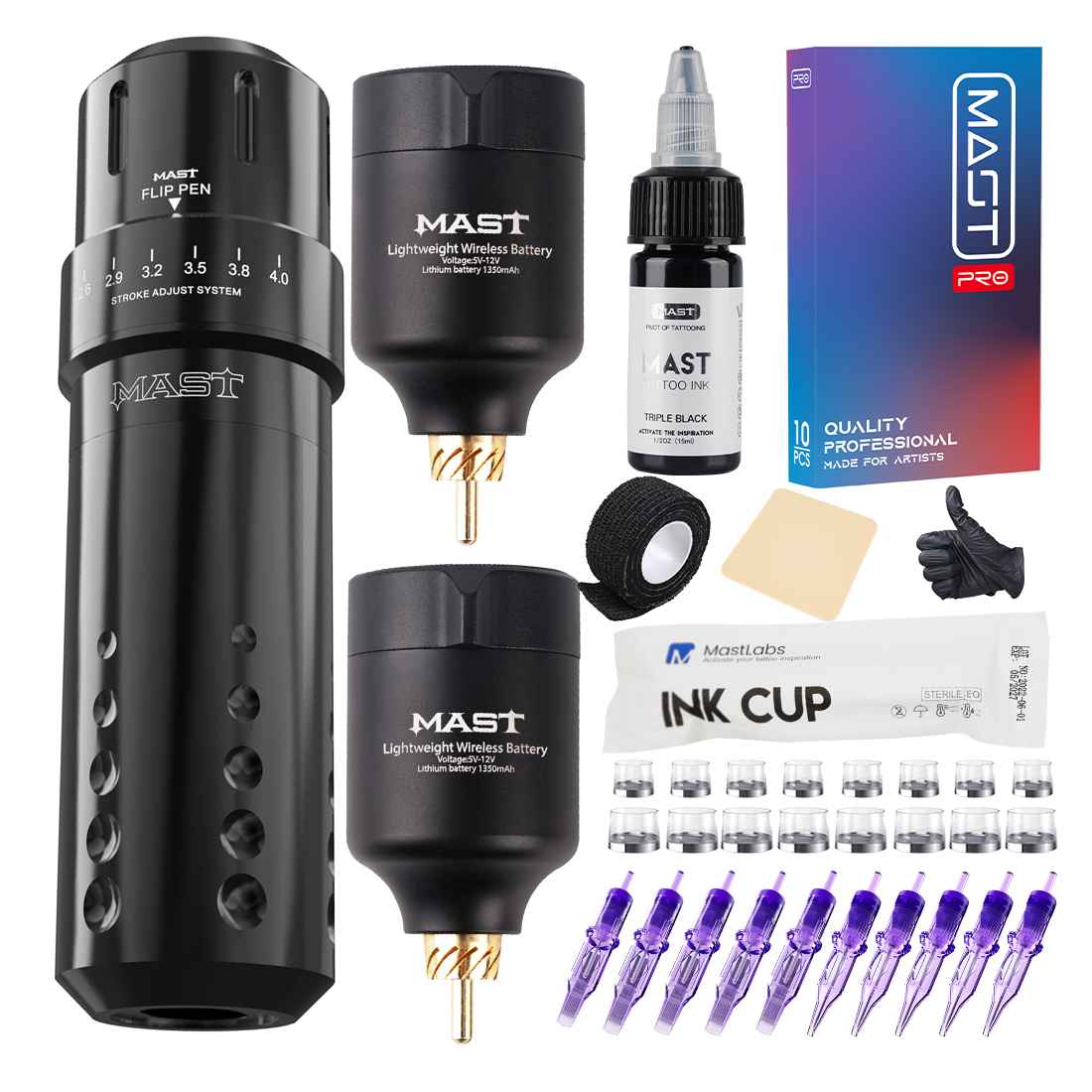Tattoos have become increasingly popular in recent years, with more and more people choosing to adorn their bodies with unique and meaningful designs.
However, it’s crucial to understand that getting a tattoo is not just about the process itself but also about the proper aftercare to ensure optimal healing and longevity.
One common question that arises during the healing process is “When can I wear tight clothing or jewelry over a tattoo?”.
In this article, we will delve into this topic and provide you with valuable insights to help you make informed decisions about your tattoo care.
Understanding the healing process of tattoos
Before we delve into when it’s appropriate to wear tight clothing or jewelry over a tattoo, it’s important to understand the different phases of tattoo healing.
The healing process typically consists of three phases: the initial healing phase, the peeling or flaking phase, and the final healing phase.
Each phase has its own duration and requires specific care to ensure proper healing.
1. The initial healing phase: During the initial healing phase, which lasts approximately one to two weeks, your tattoo will go through significant changes.
The area will be red, swollen, and may even ooze small amounts of blood or ink.
It is crucial to keep the tattoo clean and moisturized during this phase to prevent infection and aid in the healing process.
2. The peeling or flaking phase: This usually occurs around the second or third week after getting a tattoo.
Your skin will naturally shed the topmost layer, revealing a new layer of healed skin beneath.
It’s essential to resist the urge to pick or scratch at the tattoo during this phase to avoid scarring or color loss.
3. The final healing phase: This generally takes about four to six weeks. By this time, your tattoo should be fully healed, with the skin texture returning to normal.
However, it’s important to note that healing times can vary depending on various factors, such as the size and location of the tattoo, your overall health, and how well you follow the aftercare instructions provided by your tattoo artist.
Also Read: Can I wear tights over a new tattoo?
When to avoid tight clothing or jewelry over a new tattoo
During the initial healing phase of your tattoo, it is advisable to avoid wearing tight clothing or jewelry over the area.
This is because a fresh tattoo needs proper airflow to facilitate healing. Tight clothing like leggings or jewelry can restrict airflow and cause irritation, which may lead to complications such as prolonged healing, increased risk of infection, or even damage to the tattoo itself.
Additionally, tight clothing or jewelry can create unnecessary friction against the delicate healing skin, potentially causing discomfort and delaying the healing process.
It’s crucial to give your tattoo the space it needs to breathe and heal properly.
Therefore, it is generally recommended to opt for loose-fitting clothing made from breathable fabrics during the initial healing phase.
Also Read: How long to avoid tight clothes after tattoo
When it is safe to wear tight clothing or jewelry over a healed tattoo
Once your tattoo has completed the entire healing process and is fully healed, you can begin wearing tight clothing or jewelry over it.
The duration of the healing process can vary from person to person, but it typically takes around two to eight weeks.
It’s important to exercise patience and wait until your tattoo is fully healed before subjecting it to any form of pressure or friction.
When choosing tight clothing or jewelry to wear over your healed tattoo, it is crucial to consider the materials.
Opt for soft and breathable fabrics that will minimize friction against the tattoo and prevent irritation.
Avoid materials that are rough, scratchy, or prone to snagging, as they can potentially damage the tattoo or cause discomfort.
While wearing tight clothing or jewelry over a healed tattoo, it’s essential to be mindful of protecting it from external factors that could impact its appearance or cause harm.
For example, if your tattoo is located in an area prone to excessive sun exposure, be sure to apply a high-quality sunscreen with a high SPF to prevent fading or damage from harmful UV rays.
Taking care of your tattoo while wearing tight clothing or jewelry
When wearing tight clothing or jewelry over a tattoo, it’s important to continue practicing proper tattoo care to ensure its longevity and vibrant appearance.
Here are a few essential tips to follow:
1. Using breathable fabrics: Choose clothing made from breathable materials such as cotton or bamboo to allow air circulation and minimize friction against the tattoo.
2. Avoiding friction and excessive pressure: Be mindful of any rubbing or pressure that may occur when wearing tight clothing or jewelry.
Adjust the fit or position as necessary to avoid unnecessary stress on the tattooed area.
3. Cleaning and moisturizing the tattoo regularly: Even when covered by clothing or jewelry, it’s crucial to continue cleaning your tattoo gently with mild soap and lukewarm water. After cleaning, apply a thin layer of tattoo-specific moisturizer to keep the skin hydrated and promote optimal healing.
4. Choose Suitable Jewelry: Opt for jewelry made from hypoallergenic materials, such as surgical-grade stainless steel or titanium, to minimize the risk of irritation or allergic reactions.
5. Clean Jewelry Regularly: Keep your jewelry clean and sanitized to reduce the risk of infections. Follow the manufacturer’s instructions for cleaning and maintenance.
6. Avoid Excessive Movement: Limit excessive movement of jewelry around the tattooed area to prevent rubbing or irritation
Also Read: How to stop new tattoo rubbing on clothes
Potential risks and precautions to consider
While wearing tight clothing or jewelry over a tattoo is generally safe after it has healed completely, there are some potential risks and precautions to keep in mind:
1. Allergic reactions to jewelry materials: Some individuals may be sensitive or allergic to certain metals used in jewelry, such as nickel.
If you experience any signs of an allergic reaction, such as redness, itching, or swelling, it’s essential to remove the jewelry and seek medical advice.
2. Choosing appropriate jewelry designs: When selecting jewelry to wear over a tattoo, consider designs that won’t snag or catch on the tattooed area.
Smooth and well-polished jewelry with rounded edges is generally a safer choice.
3. Signs of complications and when to seek medical help: Keep an eye out for any signs of infection, such as increased pain, redness, swelling, or discharge.
If you notice any concerning symptoms or if the tattoo does not seem to be healing properly, it’s crucial to consult a healthcare professional for further evaluation and guidance.
Tips for maintaining the longevity of your tattoo
To ensure your tattoo stays vibrant and beautiful for years to come, here are a few additional tips for maintaining its longevity:
1. Proper aftercare routine: Follow the aftercare instructions provided by your tattoo artist diligently.
Clean and moisturize the tattoo regularly, avoid picking or scratching, and protect it from excessive moisture, sunlight, and harsh chemicals.
2. Protecting the tattoo from sunlight and UV exposure: UV rays can fade and damage tattoos over time. Apply a high SPF sunscreen to the tattooed area whenever it will be exposed to the sun.
Consider wearing protective clothing or seeking shade when spending extended periods outdoors.
3. Regular touch-ups and maintenance: Over time, tattoos may fade or lose some of their vibrancy.
Schedule regular touch-ups with a professional tattoo artist to keep your tattoo looking fresh and vibrant.
They can assess the tattoo’s condition and recommend any necessary touch-up work.
Also Read: What happens if you wear tight clothes after a tattoo
Conclusion
That’s it on the question, “When can I wear tight clothing or jewelry over my tattoo?”.
Knowing when it’s safe to wear tight clothing or jewelry over a tattoo is essential for its proper healing and long-term care.
While it’s crucial to allow your tattoo to breathe and heal during the initial phase, you can comfortably wear tight clothing or jewelry once the tattoo has fully healed.
Remember to choose breathable fabrics, avoid excessive friction, and continue practicing proper tattoo care to maintain its appearance and longevity.
By following these guidelines and caring for your tattoo attentively, you can enjoy your inked artwork for years to come.
FAQs
Can I wear tight clothing immediately after getting a tattoo?
It is not advisable to wear tight clothing immediately after getting a tattoo. Fresh tattoos require proper airflow to heal, and tight clothing can impede this process and increase the risk of complications.
How long should I wait before wearing tight clothing or jewelry over my tattoo?
It’s generally recommended to wait until your tattoo is fully healed, which can take around six to eight weeks, before wearing tight clothing or jewelry over it.
What types of fabric should I avoid when wearing tight clothing over my tattoo?
Avoid rough, scratchy, or non-breathable fabrics that can cause friction and irritation against your tattoo. Opt for soft and breathable materials like cotton or bamboo.
Can tight clothing cause my tattoo to fade or blur?
Wearing tight clothing over a fully healed tattoo is unlikely to cause significant fading or blurring.
However, excessive friction or pressure can potentially affect the tattoo’s appearance over time, so it’s best to choose comfortable and well-fitting clothing.
Is it safe to wear jewelry over a new tattoo?
It is generally not recommended to wear jewelry over a new tattoo during the initial healing phase. Jewelry can restrict airflow and cause irritation, increasing the risk of complications.
What are the signs of an allergic reaction to jewelry on a tattoo?
Signs of an allergic reaction to jewelry on a tattoo may include redness, itching, swelling, or a rash around the tattooed area.
If you experience these symptoms, remove the jewelry and seek medical advice.
Should I remove jewelry while my tattoo is healing?
It’s generally recommended to avoid wearing jewelry over a healing tattoo. Once the tattoo is fully healed, you can safely wear jewelry, ensuring it’s made from materials that won’t irritate your skin or damage the tattoo.






